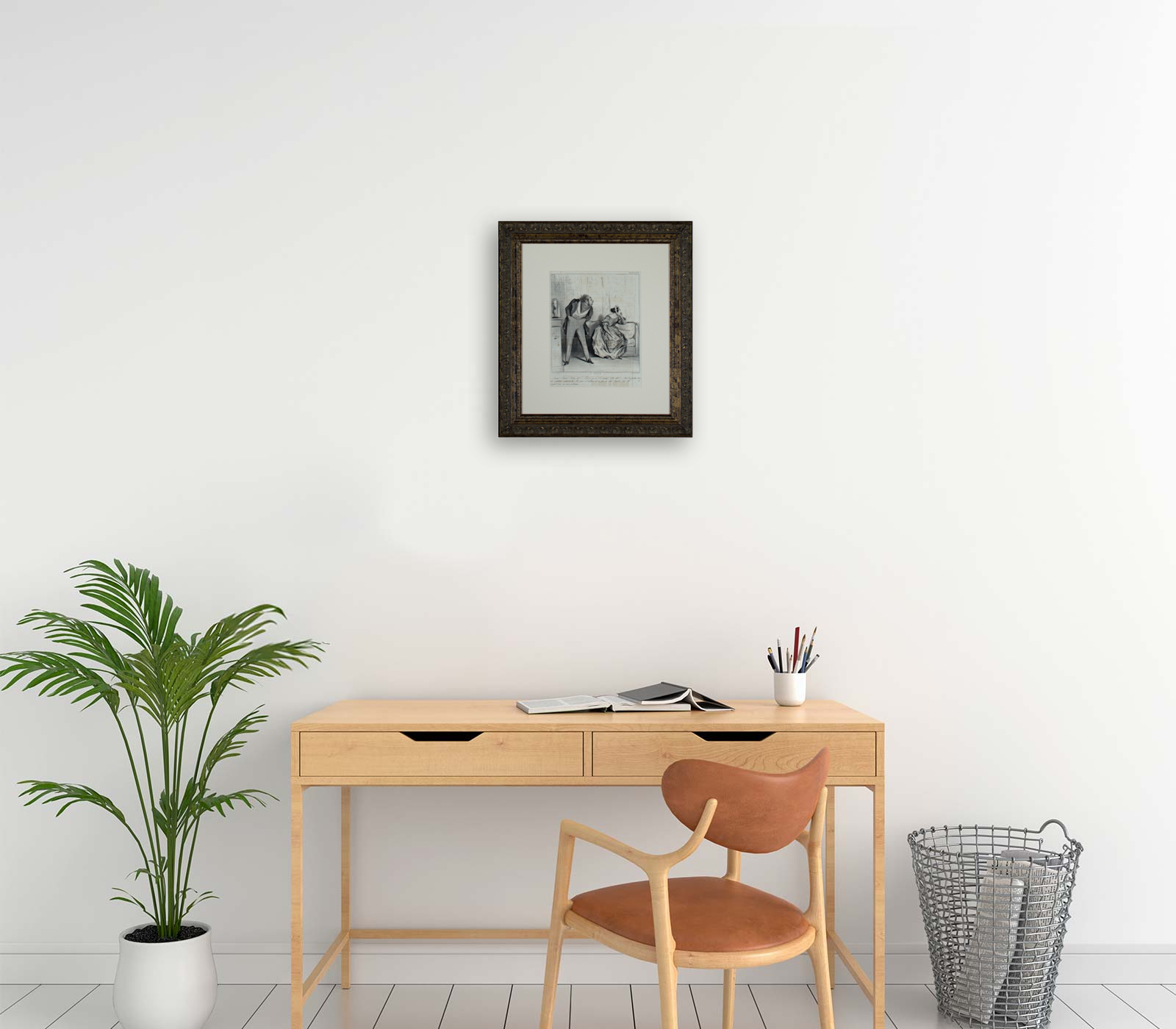De Quoi! De Quoi! Votre Dot? (Published in Le Charivari)
Honore Daumier
De Quoi! De Quoi! Votre Dot? (Published in Le Charivari)
Artist:
Honore Daumier
Medium: Prints
Price:
$1,667.50
Gallery:
David Barnett Gallery
Add to Favorites
Details
Creation Date: 1837
Materials: Original Lithograph 3/3 D.390
Dimensions: 22" x 19" x 1"
Finish: Framed
About the Item
Edition Number 3. Edition Size 3
About the Artist
Honore Daumier
Honore Daumier (born February 20/26, 1808, Marseille, France-died February 11, 1879, Valmondois, France) was a prolific French caricaturist, painter, and sculptor especially renowned for his cartoons and drawings satirizing 19th century French politics and society from the Revolution of 1830 to the fall of the second Napoleonic Empire in 1870. He was a republican democrat, who satirized and lampooned the monarchy, politicians, the judiciary, lawyers, the bourgeoisie, as well as his countrymen and human nature in general. His paintings, through hardly known during his lifetime, helped introduce techniques of Impressionism into modern art. The young Daumier learned lithography and produced miscellaneous illustrations in the mid to late 1820s. He produced his first caricatures of note for La Silhouette and joined the staff of La Caricature, expressing his political convictions as a working class republican in opposition to the new monarchy, its bureaucracy, and the bourgeoisie that supported and profited from it. Daumier's caricature of King Louis Philippe caused him to be fined and imprisoned for six months. In the late 1840s, the artist became increasingly dedicated to painting. The poet Charles Baudelaire became a close friend and advocate of Daumier's work. He also gained the friendship of important painters. In 1860, the journal, Le Charivari, dropped Daumier from their staff and he suffered severe financial hardship. Le Charivari presented him with a new contract in 1864 and he returned to making caricatures and cartoons. By the mid 1860s, a few collectors were showing some interest in his drawings and watercolors and a group of friends organized an exhibition of the artist's work in Paris. Losing his sight, Daumier lived for the remainder of his life in Valmondois. He died in February of 1879.
About the Gallery
David Barnett Gallery
The David Barnett Gallery is Wisconsin's premier gallery with the broadest range of art available in the region, including works of art that represent more than 600 artists. The gallery specializes in European and American masters, regional and nationally recognized artists and emerging artists. This gallery also offers museum quality custom framing, restoration, conservation, appraisals, printing, transportation and delivery.
Similar Artworks
Similar Artists
More from this Seller







 Facebook
Facebook
 X
X
 Email
Email
























